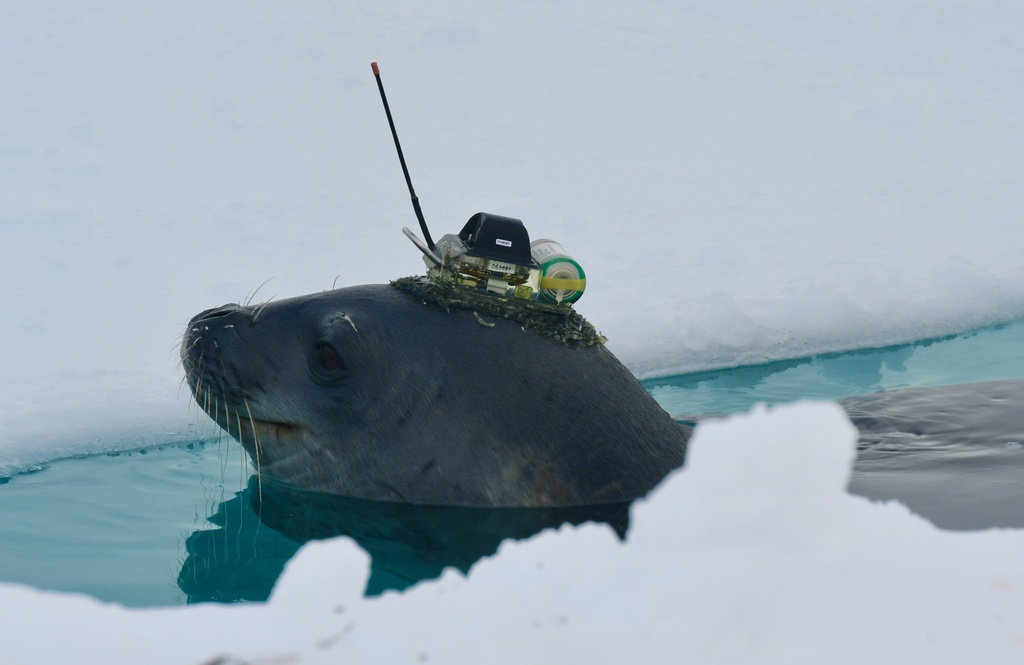The IMOS Animal Tagging Sub-Facility has developed a new quality control process to improve the accuracy of data transmitted by Seal Satellite Relay Data Loggers (SRDL).
IMOS Animal Tagging scientists have created two new quality control packages for the software R to use with data transmitted from seal Satellite Relay Data Loggers – foieGras and imosQCdev.
The foieGras package fits continuous-time models in state-space form, estimating most probable locations along animal trajectories from error-prone locations observed via the Argos satellite system.
The imosQCdev package applies the foieGras models automatically to the new data received every 24-hours and appends the estimated locations to Conductivity-Temperature Depth (CTD) profiles and other data collected. The data are available in near real-time mode on the AODN Portal, and also become available in delayed mode on the AODN Portal when a second level of supervised QC is completed by the end of the Austral Summer.
The IMOS Animal Tracking – Animal Tagging Sub-Facility annually deploys Satellite Relay Data Loggers (SRDL) on several species of Southern Ocean seals including Weddell and Southern Elephant seals.
The data loggers are equipped with a CTD and sometimes a fluorometer, collecting high resolution ocean observations in the deep Southern Ocean and Antarctic waters. Animal activity such as dive depths and duration, which are important for understanding marine mammal foraging ecology are measured by the data loggers.
Researchers are advancing understanding of the world’s oceans and its top predators, how these species interact with their environment and predicting how they may be affected by future changes through analysis of combined oceanography and marine mammal ecology data.
Data Links and Further Information
Near real-time collection on the AODN Portal.
Delayed Mode on the AODN Portal.
Both dataset collections are available as a set of csv files, including the automated QC summary output.
The original format files for these two dataset collections can be found on the AODN data server (for the delayed mode and the near real-time)
The two new dataset collections replace the Satellite Relay Tagging Program – Delayed mode data collection that provides access to the data coming directly from the Sea Mammal Research Unit (SMRU, University of St. Andrews, UK).
The Satellite Relay Tagging Program – Delayed mode data will remain available in the AODN Portal until all historical data have been added to the new dataset collection. The IMOS Animal Tagging team will run the QC packages on the satellite locations of the historical records, supplying all records with improved satellite locations.
Thank you to Ian Jonsen of Macquarie University and Clive McMahon from the Sydney Institute of Marine Science for their contribution towards this story.
For any questions or feedback about these dataset collections or any other AODN Portal collections, please contact us at info(at)aodn.org.au
